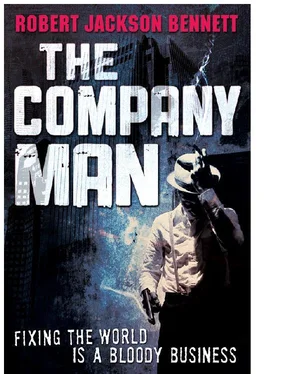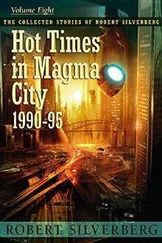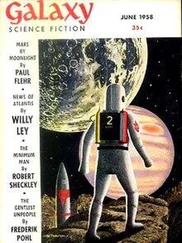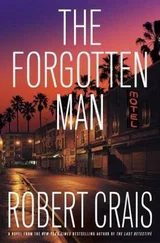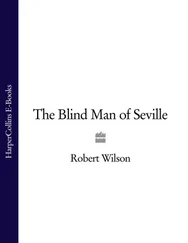Robert Bennett - The Company Man
Здесь есть возможность читать онлайн «Robert Bennett - The Company Man» весь текст электронной книги совершенно бесплатно (целиком полную версию без сокращений). В некоторых случаях можно слушать аудио, скачать через торрент в формате fb2 и присутствует краткое содержание. Жанр: Триллер, на английском языке. Описание произведения, (предисловие) а так же отзывы посетителей доступны на портале библиотеки ЛибКат.
- Название:The Company Man
- Автор:
- Жанр:
- Год:неизвестен
- ISBN:нет данных
- Рейтинг книги:3 / 5. Голосов: 1
-
Избранное:Добавить в избранное
- Отзывы:
-
Ваша оценка:
- 60
- 1
- 2
- 3
- 4
- 5
The Company Man: краткое содержание, описание и аннотация
Предлагаем к чтению аннотацию, описание, краткое содержание или предисловие (зависит от того, что написал сам автор книги «The Company Man»). Если вы не нашли необходимую информацию о книге — напишите в комментариях, мы постараемся отыскать её.
The Company Man — читать онлайн бесплатно полную книгу (весь текст) целиком
Ниже представлен текст книги, разбитый по страницам. Система сохранения места последней прочитанной страницы, позволяет с удобством читать онлайн бесплатно книгу «The Company Man», без необходимости каждый раз заново искать на чём Вы остановились. Поставьте закладку, и сможете в любой момент перейти на страницу, на которой закончили чтение.
Интервал:
Закладка:
“I was wrong about you,” he said. “I thought you wouldn’t last, at first. But you might.”
“What makes you say that?” she asked.
“Because you’re not stupid. Not by a long shot. But this isn’t a desk job anymore, Miss Fairbanks. This isn’t an ordered world of archives and hierarchies, no matter what you’d like. We don’t live for the approval of our betters, no matter how happy it may make us feel. And the truth here is soft and runny. I know you’d like to stay in the back room, reading and writing and hunched over a desk, but that’s not the way now. See?”
“I see.” Then a thought came to her and her skin went cold. She peered at him and said, “Mr. Hayes, are you trying to turn me?”
“What? Turn you?”
“Yes. Like you do everyone else I’ve seen you speak to. Make them your friends, even though they hardly know you. Tell them whatever lies they need to hear. Is that what you’ve just tried to do, to me?”
He stared at her, and somehow he seemed to grow even smaller and older in his coat. “No, Sam,” he said softly. “No, I haven’t tried to do that with you. You’d know, wouldn’t you. Since you’ve seen me do it so often.”
She still watched him suspiciously. “Was anything you told me the truth?”
“Yes,” said Hayes. “It all was, actually.”
“Even Teddy Montrose?”
Hayes nodded.
“And he’s… he’s still working for us?”
“He’s climbed a few ladder rungs at Telecommunications now. Gone up a pay grade or two. But yes.”
She thought about that. “Why are you telling me this?” she asked.
He shrugged hopelessly. “Because they’re keeping things from us. From me, and from you. And because I don’t want Naylor and his boys to go unpunished or to do anything more, and I don’t think the unions will be spooked by the police nabbing a few thugs. I’ve seen organizations like theirs before, they’re too disparate. Their reactions are too slow.”
“Is that all?”
He stared at her for a moment longer. With his wet hair and soaking coat, he suddenly seemed like a lost child. “And because I want you to trust me, I suppose.”
“What? Why?”
“I don’t know. I suppose I just know you now, Sam.” Then he bid her good day, turned, and disappeared into the crowd.
CHAPTER TEN
Garvey paced up and down the canal bank, clambering over hills of soft wet loam and crumbling cement. He had been roving up and down the canal for four hours, scanning the water and the sludge. There were disturbances, plenty of them. Footprints and cigarette butts and strange scores in the mud. None of them were very distinctive and none of them told him anything. It had been too long.
Garvey eyed the half-finished structures of Construct in the distance, the skeletal tenements and cement pillars standing up like monstrous fenceposts. A many-segmented crane sat hunched in their center, a hibernating predator in a distant, alien land. Garvey knew that somewhere on the northern side of Construct were the foundations of the Lady of Industry, Evesden’s once-intended answer to the Statue of Liberty. She’d been meant to stand along the shore, holding up a great gear that would glow a soft pink at night, the luminescence visible for miles down the Strait. It’d generally been felt that the placement couldn’t have been better, since Construct was right next to the Kulahee Bridge, which reached all the way across to Victoria, so northern visitors to Evesden would have seen the rosy gear slowly cresting the horizon as they approached. But the planners had gotten only so far as casting her feet and putting up her supports when the troubles with Construct began, and they’d been forced to abandon her along with the rest of the project. Now two enormous gray feet sat out by the waters, the waves just licking the toes, as though some giant had gone diving into the sea and left its curiously anatomical slippers behind. Garvey had seen the pictures. They’d run in all the papers when Construct had first started sinking.
Garvey shook himself and returned to the work at hand. If they’d had a body in tow they would have gone through Construct, he decided. Almost certainly. Much of it was abandoned now, and there would be a thousand places for a quiet murder in Construct. Excavated basements and foundations, collapsing canals and office sheds. But they wouldn’t have lived there. They would have gone over the Royce Bridge, or somewhere nearby. It was the only dependable route.
Garvey climbed back into his car and drove to Royce Street and surveyed the shopkeepers and homes. He took out a small photo of the dead man and began approaching the cabbies and the newspaper stands, the late-night cafes and the morning bakeries. None recognized him. But then, they said, it was tough to remember. Most nights seemed the same as any other. Garvey wrote down what they could tell him. Then he showed them a sketch of the tattoo on the man but none of them recognized that either.
“What you looking for?” asked one man at a newspaper stand. “Somebody dead?”
“Somebody’s always dead,” said Garvey.
“Yeah, yeah. But who is it this time?”
Garvey walked away and did not answer.
He moved outward in a spiral, hitting the row homes and the slums, flashing his badge and the picture and asking if there had been any disturbances or sightings of the man. The people came to the door with their eyes meek and watchful, like rabbits approaching a wolf at the entrance of their den. In many homes the reek of shit and urine and rotting wood hung in the air. Sometimes a child cried from somewhere in the depths of the house without ceasing. They knew nothing.
At one home a dog was chained up in the alley beside, panting as though delighted with the day. Garvey knocked on the door and an elderly woman with cataracts the color of oyster shells answered. When he asked her about the picture she had to pull it close and peer at it with one eye as though she were looking at it through a microscope. Then she said, “Oh, yes! I’ve seen him.”
“When?” asked Garvey eagerly. “About three, four weeks ago?”
“Oh, no. Long before that, I think. Last summer. He had a little boy with him. Little boy, used to play with my dog while I watched. The man asked if it was all right and I said certainly it was.”
“He had a little boy?” said Garvey, mentally groaning.
“Yes. He gave Arthur the high point of his day.”
“Arthur?”
“My puppy. Arthur’s his name.” She smiled blindly in the general direction of the little dog, who almost seemed to smile back.
“What was he doing out here? The man, I mean.”
“I’m not sure. He used to come out here on walks with his boy, I think. There’s a playground nearby. Then they used to go over and look across the waterway at Construct. He said he told his little boy giants played there.”
“Did you get the man’s name?”
“No. It was months ago and he only came a handful of times. More than half a year ago. I probably wouldn’t remember if it hadn’t been for Arthur. And it was before my eyes went, you see.”
“Sure, sure. Any idea where he lived?”
“Oh, somewhere around here, I assume. I’m not sure where. He always came from up the road,” she said, and pointed.
“From the Shanties?” said Garvey.
“The what?”
“The Shanties. The Porter neighborhoods.”
“I suppose so, yes.”
“What did the little boy look like?” he asked.
“Like a normal boy. About ten. Underfed a little. He was about so high and he had brown hair and brown eyes,” she said, sticking a quivering hand out breast-high. “That’s about all I remember. I think the boy’s name was Jack, but I can’t be sure.”
Читать дальшеИнтервал:
Закладка:
Похожие книги на «The Company Man»
Представляем Вашему вниманию похожие книги на «The Company Man» списком для выбора. Мы отобрали схожую по названию и смыслу литературу в надежде предоставить читателям больше вариантов отыскать новые, интересные, ещё непрочитанные произведения.
Обсуждение, отзывы о книге «The Company Man» и просто собственные мнения читателей. Оставьте ваши комментарии, напишите, что Вы думаете о произведении, его смысле или главных героях. Укажите что конкретно понравилось, а что нет, и почему Вы так считаете.
